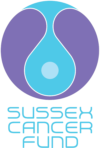
We caught up with author Anita Howell from ‘Meet Lucy and Jack and Friends’.
Meet Lucy and Jack and Friends, Lucy and Jack are two fictional young children whose Daddy has End Stage Renal Failure and whose Mummy is having treatment for Breast Cancer. While Lucy and Jack are fictional they are based on Anita’s and her husband Dr Simon’s own children.
All their books are a useful resource to help children understand and talk about a difficult situation that their family is facing. All the books have a glossary to explain the medical words. All the books have been endorsed by a medical professional.
Her latest book ‘B is for Breast Cancer’ is about Lucy and Jack who have a Mum who has been diagnosed with primary breast cancer and needs to have chemotherapy, surgery, radiotherapy and hormone therapy. This book explores a little of the impact on the lives of the family, in a way designed to be helpful and non-threatening to children who may share a similar experience.
1. Describe your book in a nutshell
Our book is about two children whose Mum is diagnosed with Primary Breast Cancer which has spread to her lymph nodes. The book explains what Breast Cancer is, explores the treatments that Mum has and how they make her feel (side effects) and how Mum being ill effects the whole family and how they cope.
2. Why did you decide to write the book?
When I was diagnosed, we had written and published our first two books (out of three) about Kidney Disease and its treatments and we were producing the third book. The books were written to help children like our two who had a family member with Kidney Disease, after we looked for years for children’s books to read with our children. So when I was diagnosed I wanted write a book that was similar to the Kidney ones in style but specific to Breast Cancer.
3. What was your own experience of talking to children about cancer?
– As you would expect it was really hard having to tell the children that I had Breast Cancer, especially as they had been living with their Dad being seriously ill with Renal Failure for as long as they could remember and at the time we thought that it was unlikely that he would get a transplant. Their Grandpa had been diagnosed with metastatic Prostate Cancer the previous year. So to find out that Mummy had Cancer too was very scary! But we were able to reassure them that I would do everything that my doctors told me to and that the doctors thought it was treatable.
– We have repeatedly been surprised by how mature and amazing our children have been in taking our news or the constant appointments and treatments You’ll find that although there are, of course, times that they struggle and rail against what’s happening, they often too take things in their stride and assimilate news or side effects that we are most worried about telling them.
4. What are your tips for telling children about breast cancer?
– Be honest with your children. As parents / carers we want to protect our children and not worry them, but children know that if you’re sleeping more than usual or being sick, for example, that there is something wrong. It’s far scarier to know that there’s something wrong but not know what it is than being told that Mummy is ill but she’s going to have medicine or an operation and do everything that the doctors tell her to do.
– Follow your children’s lead. Our children are eleven & six and they have always found that the medical information we have given them to be helpful in understanding a diagnosis, treatment and side effects. But there were times that they didn’t want to talk about Mummy being ill.
– Allow them to express their feelings / worries. It’s hard to hear that your children are worried about you or to hear them ask who they will live with if you both die. But we found that telling our children that it’s ok to be worried / angry / sad enabled them to cope with their feelings. We had already asked friends to be our children’s guardians if anything happened to both of us, so when our son asked that question I was able to tell him and it reassured him.
– Use available resources. When I was diagnosed with breast cancer we were given a couple of books by my Breast Care Nurse for the children. Our daughter found the one she was given helpful and we looked for more books.
– Keep communicating. You may have treatment for up to a year or longer, depending on your treatment regime and how it works. So keep talking about what you’re treatments are having and why, about the side effects.
If you would like a copy please contact Julia.Lenton@bsuh.nhs.uk

